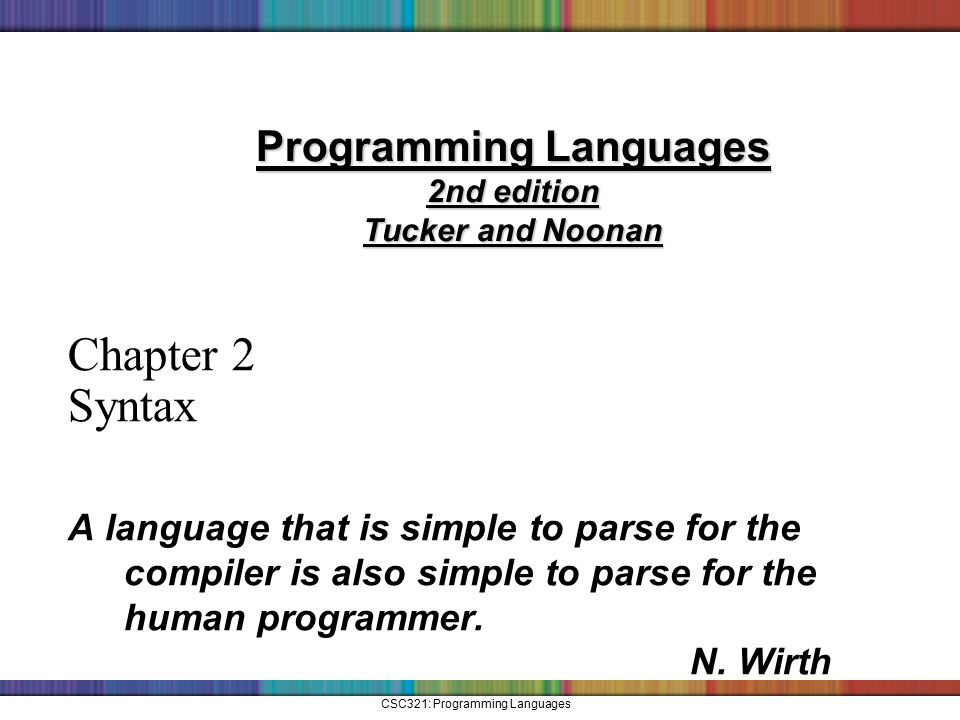
Principles Of Programming Languages Robert W Sebesta Pdf Reader
Download Concepts of Programming Languages Free, Concepts of Programming Languages Full Collection, Concepts of Programming Languages Free Read Online, Robert W. Sebesta epub Concepts of Programming Languages, Free Download Concepts of Programming Languages Best Book, PDF Concepts of. Tambm moro em Goinia e no sei onde fica nada aqui para comprar. Skills help focus your reading. • Textbook: – Robert W. Concepts of Programming. Languages, 9th edition. 8th edition is ok. • On reserve in the.
Description For undergraduate students in Computer Science and Computer Programming courses. Now in its Tenth Edition, Concepts of Programming Languagesintroduces students to the main constructs of contemporary programming languages and provides the tools needed to critically evaluate existing and future programming languages.
Readers gain a solid foundation for understanding the fundamental concepts of programming languages through the author's presentation of design issues for various language constructs, the examination of the design choices for these constructs in some of the most common languages, and critical comparison of the design alternatives. In addition, Sebesta strives to prepare the reader for the study of compiler design by providing an in-depth discussion of programming language structures, presenting a formal method of describing syntax, and introducing approaches to lexical and syntactic analysis. • An examination of related topics is coupled with the fundamental concepts of programming languages: • Formal methods of describing the syntax and semantics of programming languages are described in Chapter 3. • Implementation techniques for various language constructs are discussed in chapter 4 using lexical and syntax analysis, and in chapter 10 using the implementation of subprogram linkage. • Coverage of advanced object-oriented topics and languages is integrated throughout. • Historical boxes and interviews with James Gosling, Larry Wall, Alan Cooper, Bjarne Stroustrup, and others set the material into context.
• Valuable historical foundations are presented early, outlining the origins, purposes, and contributions of the most important languages discussed in the rest of the text. • In-depth discussions of the design issues for the primary constructs of the imperative languages are presented in later chapters. • Two alternative programming paradigms include coverage of functional programming and logical programming. • Each new student copy includes an access card for the Companion Website, which includes a language reference library and PowerPoint presentations for each chapter. Table of Contents Chapter 1 Preliminaries 1 1.1 Reasons for Studying Concepts of Programming Languages. Crw32exe 85 download.
2 1.2 Programming Domains..... 5 1.3 Language Evaluation Criteria.... 7 1.4 Influences on Language Design....
18 1.5 Language Categories..... 21 1.6 Language Design Trade-Offs.... 23 1.7 Implementation Methods..... 23 1.8 Programming Environments.... 31 Summary • Review Questions • Problem Set... 31 Chapter 2 Evolution of the Major Programming Languages 35 2.1 Zuse’s Plankalkül..... 38 2.2 Pseudocodes......
39 2.3 The IBM 704 and Fortran.... 42 2.4 Functional Programming: LISP.... 47 2.5 The First Step Toward Sophistication: ALGOL 60.. 52 2.6 Computerizing Business Records: COBOL... 58 2.7 The Beginnings of Timesharing: BASIC... 63 interview: Alan Cooper–User Design and Language Design..
66 2.8 Everything for Everybody: PL/I.... 68 2.9 Two Early Dynamic Languages: APL and SNOBOL.. 71 2.10 The Beginnings of Data Abstraction: SIMULA 67.. 72 2.11 Orthogonal Design: ALGOL 68....
73 2.12 Some Early Descendants of the ALGOLs... 75 2.13 Programming Based on Logic: Prolog... 79 2.14 History’s Largest Design Effort: Ada... 81 2.15 Object-Oriented Programming: Smalltalk... 85 2.16 Combining Imperative and Object-Oriented Features: C++. 88 2.17 An Imperative-Based Object-Oriented Language: Java.. Obrazec zhalobi na rabotu gorodskogo transporta mean. 91 2.18 Scripting Languages.....